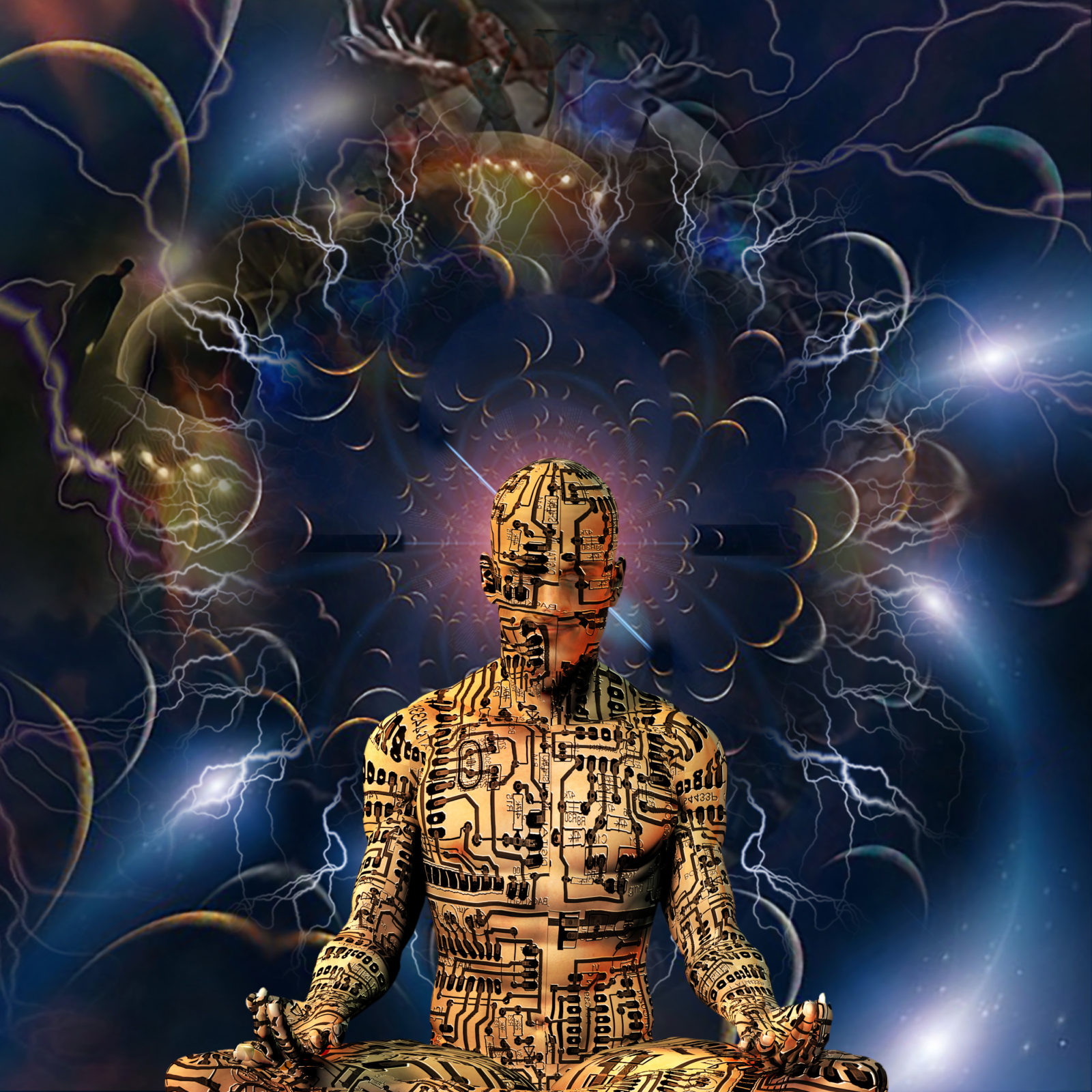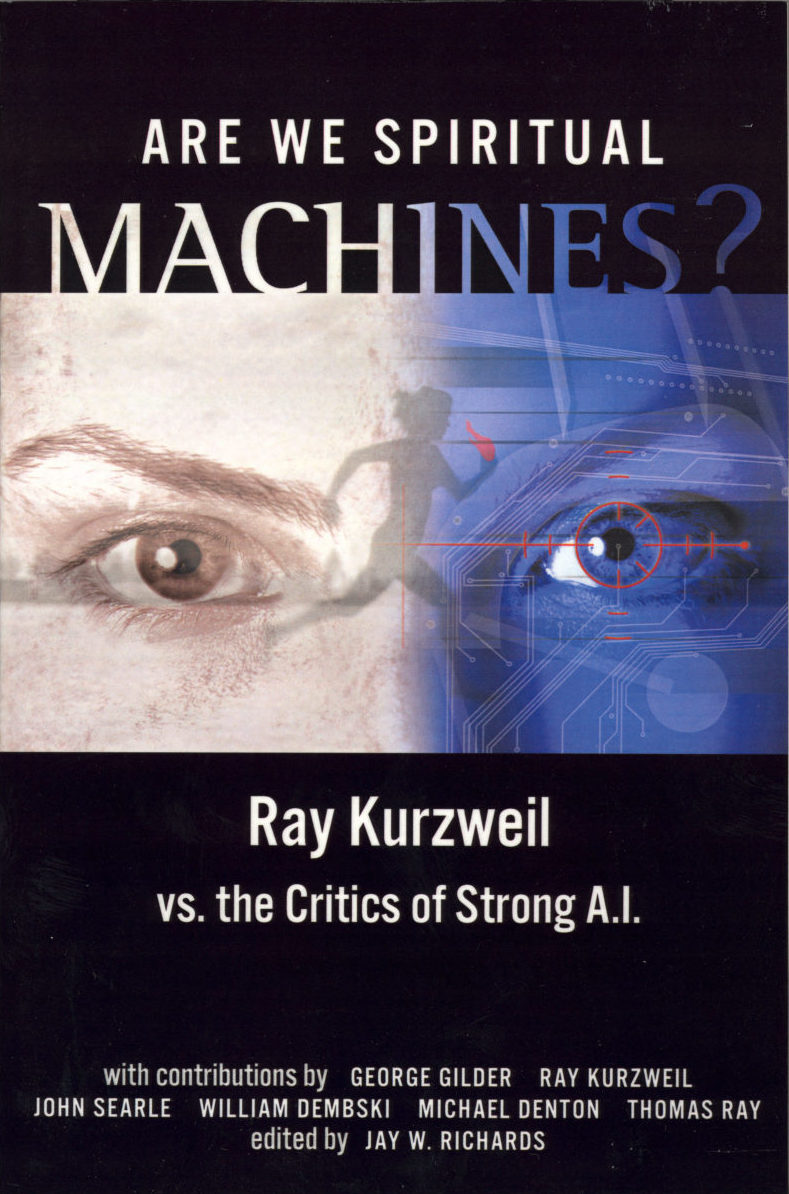Are We Spiritual Machines?
Ray Kurzweil vs. the Critics of Strong A.I. Buy book at Amazon.comIn the closing session of the 1998 Telecosm conference, hosted by Gilder Publishing and Forbes at Lake Tahoe, inventor and author Ray Kurzweil engaged a number of critics. He advocated “Strong Artificial Intelligence” (AI), the claim that a computational process sufficiently capable of altering or organizing itself can produce “consciousness. The session had an unexpectedly profound impact, not least because a number of important issues from technology to philosophy converge on this one issue. This volume reproduces and expands upon that initial discussion.
Esteemed AI advocate Ray Kurzweil opens the volume arguing that by 2019, a personal computer will rival the processing power of the human brain. He is convinced that artificial intelligence – with the capability to “feel” and think like a human – will necessarily emerge. The twenty-first century will see a blurring of the line between human and machine as neural implants become more prevalent. Eventually, machines will become “spiritual” – or as Kurzweil means it, “conscious.”
Kurzweil also sees an analogy between technological evolution and traditional accounts of Darwinian evolution. Under Darwinism, life-forms took billions of years to develop but then exploded in short burst of diversification. Kurzweil calls this the “law of accelerating returns” where technological innovation in the 20th century surpassed all previous centuries combined. At this rate, computation power currently doubles every year. By 2050, a personal computer will have the computing power of all the human brains on earth. Kurzweil believes that simply by reverse-engineering the human mind it can be reproduced. Eventually, human minds will be downloaded and “cloned.” He then envisions software-based “humans” which can effectively live forever, or at least as long as their hardware lasts. Humans can become like God.
Skeptics of Kurzweil then have their chance to respond.
Senior Discovery Institute Fellows George Gilder and Jay Richards write that Kurzweil’s vision of the future “seems to be a substitute vision for those who have lost faith in the traditional object of religious belief.” Gilder and Richards observe that in the debate over A.I., one’s premises have a large effect upon one’s conclusions. For example, if humans are only “a carbon-based, complex, computational, collection of atoms” then of course we can truly replicate human behavior through machines. But if we’re not simply matter-machines, then perhaps A.I. will never truly be able to reproduce a human mind.
Senior Discovery Institute Fellow William Dembski takes aim at Kurzweil’s arguments, saying they lead to an “impoverished spirituality.” Since materialism predicts that mind is reducible to matter, Dembski argues that “[m]achine spirituality neglects much that has traditionally been classified under spirituality” for “[t]he spiritual experience of a machine is necessarily poorer than the spiritual experience of a being that communes with God.” “How,” Dembski asks, “can a machine be aware of God’s presence?” There is something vastly deficient about Kurzweil’s conceptions of spirituality.
John Searle explains that when Deep Blue beat Gary Kasparov, that Deep Blue wasn’t really “thinking” about chess while Kasparov fully understood the game he was playing. Deep Blue could duplicate the playing of chess, but wasn’t really “playing chess.” In short, Kurzweil would say “if it looks the same and feels the same, then it really is the same.” Searle pushes us to ask deeper questions: “Is it really the same?”
Michael Denton makes a similar argument: he concedes that if living organisms really are in all respects analogous to inorganic machines, then Kurzweil may very well be right. But Denton has doubts. Living organisms undergo complete reproduction of both “hardware” and “software” – something that no machine can do. Moreover, living organisms cannot be reduced to genes – meaning that something more than “software” is necessary for life.
This debate will likely not end any time soon but may be concluded based upon how technology advances in this century. For a preview of debates to come, the prophecies of Kurzweil – and the responses from critics – are well worth reading. Fifty years from now, one side will be able to say “We were right.”
Contributors not associated with Discovery include Thomas Ray, Michael Denton, Ray Kurzweil, and John Searle.

